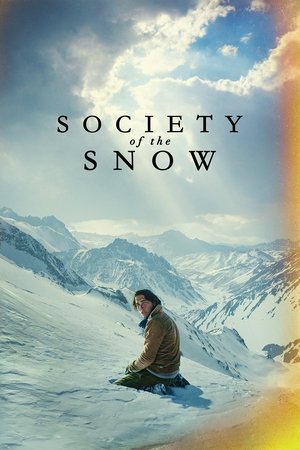Netflix’s annual tradition of releasing survival movies set in extreme conditions continues with J. A. Bayona’s ‘Society of the Snow.’ This year, the film takes us to the icy landscapes of the Andes, unfolding a gripping narrative inspired by a true event involving a rugby team stranded on a glacier.
In the year 1972, the Uruguayan Air Force Flight 571, carrying a rugby team, their families, friends, and coach, faces a tragic fate when it crashes on a glacier in the Andes. The film delves into the struggles of the survivors as they grapple with the harsh conditions, dwindling resources, and the moral dilemma of resorting to extreme measures for survival.
Survival movies set in snowy landscapes often face the challenge of visual repetition and the risk of becoming monotonous without compelling conflicts. ‘Society of the Snow’ navigates this terrain skillfully, offering not just a visual spectacle but a deep emotional and psychological perspective.
Based on Pablo Vierci’s 2009 book of the same title, co-authored with the survivors, Bayona crafts a narrative that goes beyond the typical adventurous survival film. The focus shifts from the sheer adventure to the profound measures the rugby team takes to endure. This departure sets ‘Society of the Snow’ apart from its predecessors in the genre.
Enzo Vogrincic shines as Numa Turcatti, the moral compass of the group, and the film’s narrator, even beyond his tragic demise. Numa’s posthumous narration adds an engaging layer to the storytelling, prompting the audience to reflect on the group’s emotional journey.
While juggling numerous characters and their internal conflicts, the film manages to avoid losing focus. The ethical dilemmas surrounding survival, including the sensitive issue of cannibalism, are presented without unnecessary subplots, maintaining the emotional core of the story. Bayona handles the survivors’ vulnerability with sensitivity, steering clear of exploitation for entertainment purposes.
‘Society of the Snow’ showcases the resilience of the human spirit, offering a blend of internal and external conflicts, dramatic tension, and the real-life experiences of the survivors. The film’s unique approach to morality and ethics through a deceased narrator creates a connection with the audience. As the story unfolds, posing the question of whether the tragic event was a miracle or a tragedy, Bayona leaves the interpretation to the audience, making ‘Society of the Snow’ a thought-provoking journey between life and death.


